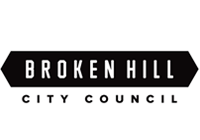Local sales by industry measures the output of local industries that is sold locally. This includes sales to local consumers, businesses and other organisations.
To get the full picture how each industry sector contributes to the regional or state economy, local sales data should be viewed alongside the other industry characteristics in the Industry sector analysis section.
Detailed notes about how the figures are derived can be found in the specific topic notes section.
Data source
National Economics (NIEIR) - Modelled series
Current benchmark:
Comparison year:
| Local sales by industry sector | |||||||||
|---|---|---|---|---|---|---|---|---|---|
| Broken Hill City - Constant prices | 2023/24 | 2018/19 | Change | ||||||
| Industry | $m | % | New South Wales | $m | % | New South Wales | 2018/19 - 2023/24 | ||
| Agriculture, Forestry and Fishing | 6.5 | 0.4 | 1.4 | 5.3 | 0.5 | 1.3 | +1.2 | ||
| Mining | 526.3 | 34.8 | 1.0 | 24.7 | 2.5 | 0.6 | +501.6 | ||
| Manufacturing | 18.8 | 1.2 | 6.6 | 26.3 | 2.6 | 7.3 | -7.5 | ||
| Electricity, Gas, Water and Waste Services | 75.5 | 5.0 | 3.4 | 69.8 | 7.0 | 2.9 | +5.7 | ||
| Construction | 201.4 | 13.3 | 22.9 | 219.0 | 22.0 | 25.1 | -17.6 | ||
| Wholesale Trade | 34.4 | 2.3 | 3.3 | 38.9 | 3.9 | 3.8 | -4.4 | ||
| Retail Trade | 78.4 | 5.2 | 4.6 | 82.3 | 8.3 | 5.0 | -3.9 | ||
| Accommodation and Food Services | 51.7 | 3.4 | 3.4 | 51.5 | 5.2 | 3.3 | +0.1 | ||
| Transport, Postal and Warehousing | 58.8 | 3.9 | 5.5 | 54.8 | 5.5 | 5.3 | +4.0 | ||
| Information Media and Telecommunications | 16.8 | 1.1 | 3.7 | 16.6 | 1.7 | 3.0 | +0.2 | ||
| Financial and Insurance Services | 34.6 | 2.3 | 5.7 | 23.3 | 2.3 | 5.7 | +11.2 | ||
| Rental, Hiring and Real Estate Services | 28.5 | 1.9 | 6.4 | 26.3 | 2.6 | 7.1 | +2.2 | ||
| Professional, Scientific and Technical Services | 22.2 | 1.5 | 9.9 | 30.8 | 3.1 | 9.4 | -8.6 | ||
| Administrative and Support Services | 45.6 | 3.0 | 4.4 | 40.7 | 4.1 | 4.3 | +4.9 | ||
| Public Administration and Safety | 72.8 | 4.8 | 4.4 | 83.4 | 8.4 | 3.9 | -10.6 | ||
| Education and Training | 52.1 | 3.4 | 3.5 | 39.0 | 3.9 | 3.3 | +13.0 | ||
| Health Care and Social Assistance | 150.8 | 10.0 | 7.1 | 129.3 | 13.0 | 6.2 | +21.5 | ||
| Arts and Recreation Services | 6.8 | 0.5 | 1.1 | 6.8 | 0.7 | 1.0 | +0.1 | ||
| Other Services | 30.9 | 2.0 | 1.8 | 25.5 | 2.6 | 1.6 | +5.4 | ||
| Total industries | 1,512.8 | 100.0 | 100.0 | 994.2 | 100.0 | 100.0 | +518.5 | ||
Source: National Institute of Economic and Industry Research (NIEIR) ©2025. Compiled and presented in economy.id by .id (informed decisions) NIEIR-ID data are adjusted each year, using updated employment estimates. Note: All $ values are expressed in 2022/23 base year dollar terms. NIEIR-ID data are inflation adjusted each year to allow direct comparison, and annual data releases adjust previous years’ figures to a new base year.Learn more | |||||||||


Dominant groups
An analysis of the local sales by industry sectors in Broken Hill City in 2023/24 shows the three largest industries were:
- Mining ($526million or 34.8%)
- Construction ($201million or 13.3%)
- Health Care and Social Assistance ($151million or 10.0%)
In combination these three industries accounted for $878 million in total or 58.1% of the total local sales by total industry in the Broken Hill City.
In comparison, the same 3 industries in New South Wales accounted for 1.0% in Mining; 22.9% in Construction and 7.1% in Health Care and Social Assistance.
The major differences between local sales by industries of Broken Hill City and New South Wales were:
- A larger percentage of local sales by Mining (34.8% compared to 1.0%)
- A smaller percentage of local sales by Construction (13.3% compared to 22.9%)
- A smaller percentage of local sales by Professional, Scientific and Technical Services (1.5% compared to 9.9%)
- A smaller percentage of local sales by Manufacturing (1.2% compared to 6.6%)
Emerging groups
The total local sales by industry in Broken Hill City $increased by 519 million between 2018/19 and 2023/24.
The largest changes in the local sales by industries between 2018/19 and 2023/24 in Broken Hill City were for:
- Mining (+$502 million)
- Health Care and Social Assistance (+$22 million)
- Construction (-$18 million)
- Education and Training (+$13 million)
